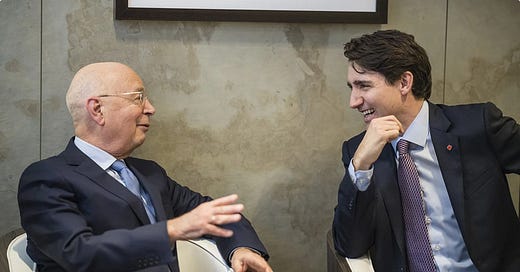Canadians need to be better informed about the activities of the current Trudeau government in advancing the World Economic Forum’s (WEF) agenda in the country.
It is important for any discussion about the WEF and Canada to acknowledge that it isn’t a conspiracy theory if the WEF tells us openly what is involved with the global “new world order.” We should accept that the WEF has made public their objectives in The Great Reset. Member countries and international corporations and organizations are focused on meeting the WEF objectives and establishing their programs worldwide. There are key Canadians who are playing a central role to the success of the WEF agenda. So, what is conspiratorial about stating the intent of the WEF and how its plans are being implemented in Canada?
The By George Journal series reviewing the globalists’ agendas has focused on a number of WEF programs, which I will not delve into again other than to say Canadians must be aware of how the WEF has become the mus…





